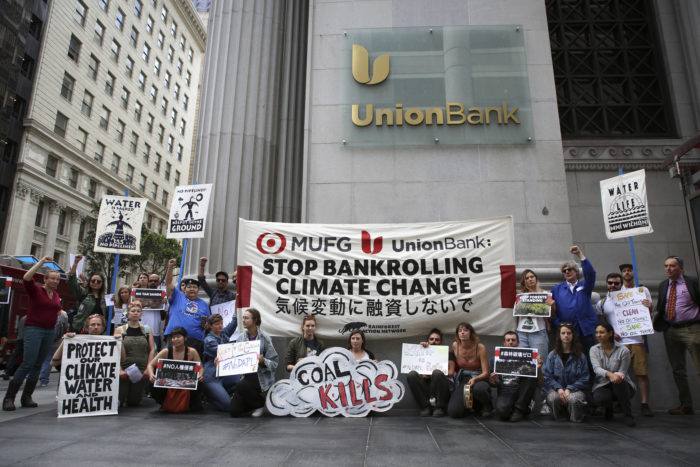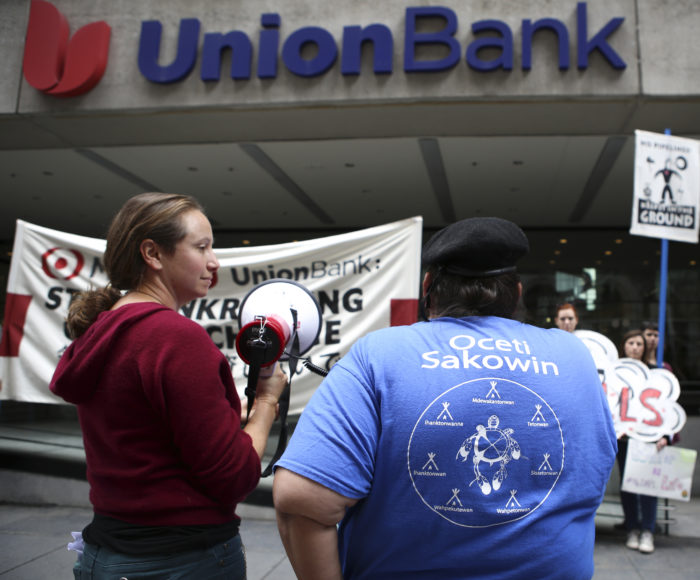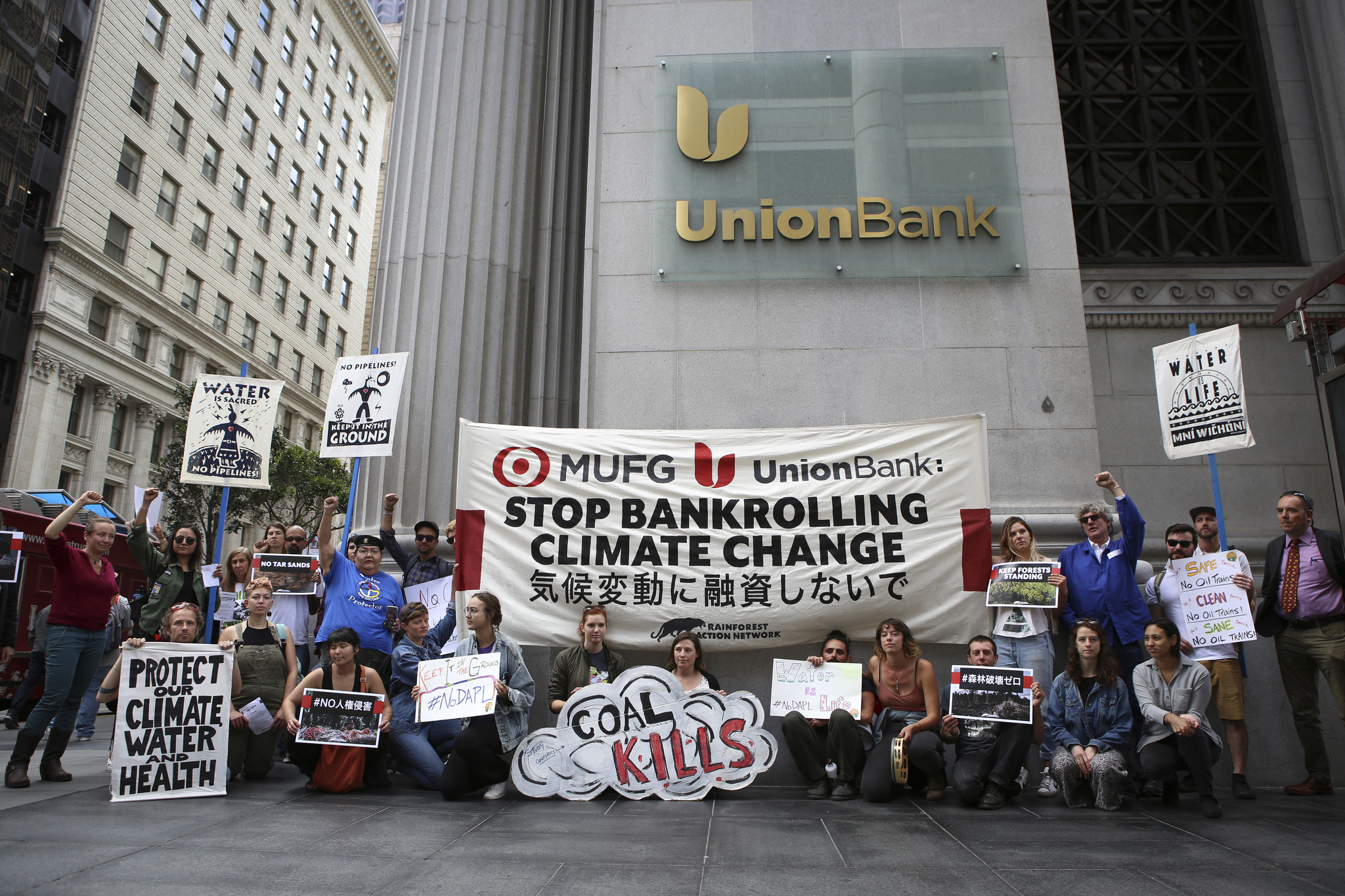Banks have a critical role to play in the transition we need to a zero-carbon future. Unfortunately, many big banks continue to fund fossil fuels and deforestation over sustainable and just solutions, putting both our climate and our future at risk.
Last week’s Global Climate Action Summit (GCAS) hosted in San Francisco by California Governor Jerry Brown was pitched as an opportunity for big corporations to make new climate commitments. But the thousands of people who protested the Summit in the streets saw it as an attempt to greenwash corporations and give them new avenues to pollute elsewhere.

Capping a week of protest by frontline community leaders, organizations, and thousands of people calling for climate justice, on September 14th, activists gathered in front of the Union Bank corporate office in San Francisco to demand that its parent company, Mitsubishi UFJ Financial Group (MUFG), “Stop bankrolling climate change.” MUFG is the largest bank in Japan and the fifth largest bank in the world, and it’s a major financier of climate-destroying companies that are decimating rainforests and extracting, transporting, and burning some of the world’s most carbon-intensive fossil fuels.
MUFG was a leading banker of the Dakota Access Pipeline, the 1,172-mile-long oil pipeline which ignited the historic months-long Indigenous-led protests at Standing Rock and was condemned by UN representatives for disrespecting Indigenous rights. MUFG funds other fossil fuel infrastructure projects, including the controversial Keystone XL and Line 3 tar sands pipelines and the Bayou Bridge oil pipeline, through its financing of companies Energy Transfer Partners, TransCanada, and Enbridge. According to a recent report Banking on Climate Change: Fossil Fuel Finance Report Card 2018, MUFG also finances coal power plants around the world and was the 5th largest coal power financier globally between 2015 and 2017.

Joye Braun of the Cheyenne River Sioux Tribe, who spoke at Friday’s rally, is a Community Organizer with the Indigenous Environmental Network and was at the Dakota Access Pipeline protests from Day 1. She said: “MUFG’s funding of tar sands and pipeline companies is genocidal and for the most part unchecked. I will not allow these banks to continue to threaten the lives of my people or my grandchildren.” Joye and other activists delivered a letter addressed to MUFG’s CEO calling on the bank to stop doing business with companies that are undermining a sustainable future.
In addition to bankrolling companies that are addicted to fossil fuels, MUFG is a major financier of companies causing tropical deforestation and associated human and labor rights abuses. MUFG continues to finance palm oil giants like Indofood that are both destroying rainforests and exploiting workers, and the bank has plans to expand its business in Indonesia, risking increased exposure to deforestation and exploitation.
On May 15th of this year, MUFG took the bold step of adopting its first ever comprehensive social and environmental safeguard policy for its corporate loans and underwriting, the first among the big three Japanese banks to do so. While the policy has clear commitments to respect human rights and provides some important environmental protections, it stopped short of committing to end its financing of climate-destroying activities. As of now, MUFG continues to fund companies responsible for major social and environmental impacts.
MUFG needs to both fully implement its current policies and strengthen them to ensure the bank is contributing toward a sustainable future. Now is the time for MUFG to finish what it began in May, adopt a truly impactful policy that protects people and planet, and match action to aspiration. The world cannot wait any longer.
Sign our petition and demand that MUFG stop bankrolling climate change!
Photos of the action can be found at www.ran.org/mufg
Read our press release.
